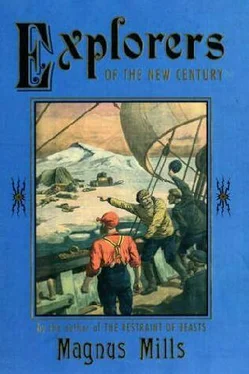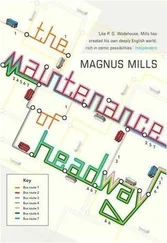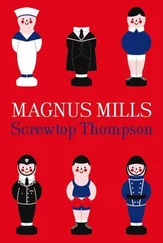Magnus Mills - Explorers of the New Century
Здесь есть возможность читать онлайн «Magnus Mills - Explorers of the New Century» весь текст электронной книги совершенно бесплатно (целиком полную версию без сокращений). В некоторых случаях можно слушать аудио, скачать через торрент в формате fb2 и присутствует краткое содержание. Год выпуска: 2005, Издательство: Bloomsbury, Жанр: Современная проза, на английском языке. Описание произведения, (предисловие) а так же отзывы посетителей доступны на портале библиотеки ЛибКат.
- Название:Explorers of the New Century
- Автор:
- Издательство:Bloomsbury
- Жанр:
- Год:2005
- ISBN:нет данных
- Рейтинг книги:4 / 5. Голосов: 1
-
Избранное:Добавить в избранное
- Отзывы:
-
Ваша оценка:
- 80
- 1
- 2
- 3
- 4
- 5
Explorers of the New Century: краткое содержание, описание и аннотация
Предлагаем к чтению аннотацию, описание, краткое содержание или предисловие (зависит от того, что написал сам автор книги «Explorers of the New Century»). Если вы не нашли необходимую информацию о книге — напишите в комментариях, мы постараемся отыскать её.
Explorers of the New Century — читать онлайн бесплатно полную книгу (весь текст) целиком
Ниже представлен текст книги, разбитый по страницам. Система сохранения места последней прочитанной страницы, позволяет с удобством читать онлайн бесплатно книгу «Explorers of the New Century», без необходимости каждый раз заново искать на чём Вы остановились. Поставьте закладку, и сможете в любой момент перейти на страницу, на которой закончили чтение.
Интервал:
Закладка:
“Odd,” remarked Guthrum. “They usually put their backs to the breeze whenever they get the chance.”
“Yes, but you know how fickle they can be,” said Tostig. “Frankly, nothing in their behaviour surprises me any more.”
“Here’s Thorsson.”
“Ah, the navigator returns.”
Thorsson had been out on the open ground taking some readings. Now he returned with news that the Agreed Furthest Point was less than five miles away. “We should arrive there around noon,” he added. “Then I’ll be able to confirm the exact position more accurately.”
After breakfast, Tostig announced that lots would be drawn to decide who should carry the flag, and therefore who should have the honour of planting it at their destination.
“In so doing we’ll avoid the kind of restraint we witnessed at Modesty Bluff,” he explained. “I don’t want everybody holding back and saying ‘after you’ at this stage in our journey; otherwise, we’ll never get anywhere.”
In the event the winning lot belonged to Thegn, who mumbled his thanks but said little else when the flag was given him for safekeeping. Then camp was broken and the expedition pressed on. During the past hour the dust storm had worsened. This hampered progress considerably. With visibility little better than in the dark days of winter, frequent stops had to be made while Thorsson checked they weren’t straying from their correct course; and after every stop it became increasingly difficult to get the mules moving again. Snaebjorn had taken over from Thegn, but even he was having a struggle managing his charges (there were no sticks on hand with which to drive them). As the morning advanced, however, the gale occasionally subsided, allowing the dust to disperse and offering the travellers a brief glimpse of what lay ahead. It was always the same: a vast, desolate wilderness stretching away towards the horizon. With evident weariness, they covered yet another mile. Then Thorsson spoke to Tostig and a halt was called. It was almost midday. Beneath a leaden sky, Thorsson produced his compass and did some calculations in his notebook. He glanced to the north and to the east, before turning and giving Tostig a nod.
“This is it,” he said.
“The Agreed Furthest Point?”
“Yes.”
There followed a lengthy silence, during which Thegn thrust the flagpole disconsolately into the ground. Immediately the standard unfurled itself and began flogging violently in the wind. The men stood around gazing blankly at one another. Meanwhile, the mules raised their heads and set up a great, sorrowful wailing; swaying back and forth, they rolled their eyes to the heavens in an outpouring of abject despair. For a long time Tostig remained motionless, apparently lost in thought. He looked first at the mules, then at the land he had brought them to. Finally, he spoke.
“This is a terrible place,” he said. “They cannot possibly live here.”
Seven
“You know what I’d like?” said Sargent.
“No,” replied Seddon. “Do tell us.”
“I’d like a plate of freshly baked scones.”
“Oh yes?”
“Scones served piping hot with lashings of butter and jam. A bit of cream would be nice as well, just to finish the job; but the main thing is they’d have to be freshly baked.”
Sargent was reclining on his utility blanket with his hands behind his head. He watched as the tent billowed languidly in the wind, causing dappled lamplight to play along the walls.
“I’m afraid scones are off the menu for the time being,” remarked Seddon.
“No spare flour then?” said Sargent.
“No flour at all,” came the answer.
The tent had four occupants. Sargent was in his normal position by the door. Next to him was Summerfield, already fast asleep. Then came Seddon, and at the far end was Plover. The latter had adopted his usual pose. He was lying on his side, outstretched with his legs crossed and his head propped on one hand, facing the doorway.
He waited a moment and then said, “I think you’ll find that the correct pronunciation is ‘scones’.”
“‘Scones?’” repeated Sargent.
“‘Scones’,” repeated Plover.
“Well, I’ve never heard that before. We’ve always said ‘scones’ where I come from.”
“Same here,” agreed Seddon.
“I assure you the word is ‘scones’,” said Plover. “You should look it up when you get the opportunity.”
“Yes, I will,” rejoined Sargent. “When I get the opportunity.”
He reached over to the lamp and turned it off. In the neighbouring tent a muffled conversation could be heard, indicating that Johns, Scagg (and possibly Chase) were still awake. Sargent also seemed keen to continue talking.
“No flour, eh?” he said.
“Not an ounce.”
“Biscuits?”
“A few.”
“Beans?”
“Likewise.”
“I suppose there’s still plenty of the patent malt drink?”
“Yep,” confirmed Seddon. “The entire case was saved from the river.”
“Well, there’s a mercy.”
“Don’t you like it then?”
“I didn’t mind it at first, but to tell the truth I’ve had that much of the stuff it’s beginning to swill round inside me.”
“So you won’t mind when we start dishing it out to the mules.”
“What?!”
“We gave them the last of their mash this evening,” said Seddon. “The rest was washed away in the disaster.”
“Are you telling me they’re going to be sharing our rations?”
“According to Scagg, yes.”
“Blimey.”
“You should be quite pleased: it’ll give you something else to moan about.”
“Oh, I fully reserve the right to moan,” said Sargent. “It’s the only pleasure I get these days.”
A series of grunts and curses in the darkness signalled that he was finally getting ready to bed down for the night, and within a few minutes he was snoring. The other tent had now gone quiet.
“Tell me, Seddon,” said Plover. “What’s our exact position regarding the supplies?”
“Quite precarious,” Seddon answered.
“It’s going to be a close call, isn’t it?”
“Indeed.”
“I thought as much,” Plover sighed. “What a damned fiasco this is.”
Not until several seconds had passed did Seddon respond.
“Pardon?” he said.
“Well, don’t you think so?” said Plover.
“Think what?”
“That this expedition has been a complete shambles from start to finish. Look at it: we’ve had one catastrophe after another: supplies running out; mules crushed or drowned; men strung out in one’s and two’s across half a continent; perfectly good tents abandoned; the list goes on and on.”
“And you could have organised it better, could you?”
“I’m just saying…”
“Look, Plover!” rasped Seddon. “I’ve told you before, I’m not interested in your weaselly sort of griping!”
“But Sargent complains morning, noon and night,” protested Plover.
“That’s different! Sargent is a time-served whinger of long-standing, and what’s more it’s a privilege he’s earned. In your case, if you’ve got anything to say you can say it directly to Mr Johns. Otherwise I suggest you keep your mouth well and truly shut!”
The snoring had ceased.
“Who?” said Sargent, drowsily.
“Nothing,” replied Seddon. “It was a disturbance over nothing.”
There was no further talk.
Outside, under the open sky, the five surviving mules were sleeping. Ever since the incident on the river, they had been allowed to shelter between the two tents at night, rather than being confined to the edge of the camp. The four males were tethered together in a group; the sole female, unrestrained, nestled amongst them. And so they remained for the long, cold hours before dawn, at which time Seddon emerged and started cooking breakfast. He was accompanied by Summerfield, whose usual duty was to prepare hot mash for the mules. This having run out the previous evening, however, he instead gave them a simplified version of the men’s rations. He then joined his comrades to eat. The morning was a dismal grey, and full daylight was very slow in coming. Consequently, it was not until the equipment was being packed up and loaded did anyone notice that the female had at some point slipped away. She was eventually spotted loitering some hundred yards to the west, and Summerfield was sent to fetch her back.
Читать дальшеИнтервал:
Закладка:
Похожие книги на «Explorers of the New Century»
Представляем Вашему вниманию похожие книги на «Explorers of the New Century» списком для выбора. Мы отобрали схожую по названию и смыслу литературу в надежде предоставить читателям больше вариантов отыскать новые, интересные, ещё непрочитанные произведения.
Обсуждение, отзывы о книге «Explorers of the New Century» и просто собственные мнения читателей. Оставьте ваши комментарии, напишите, что Вы думаете о произведении, его смысле или главных героях. Укажите что конкретно понравилось, а что нет, и почему Вы так считаете.












